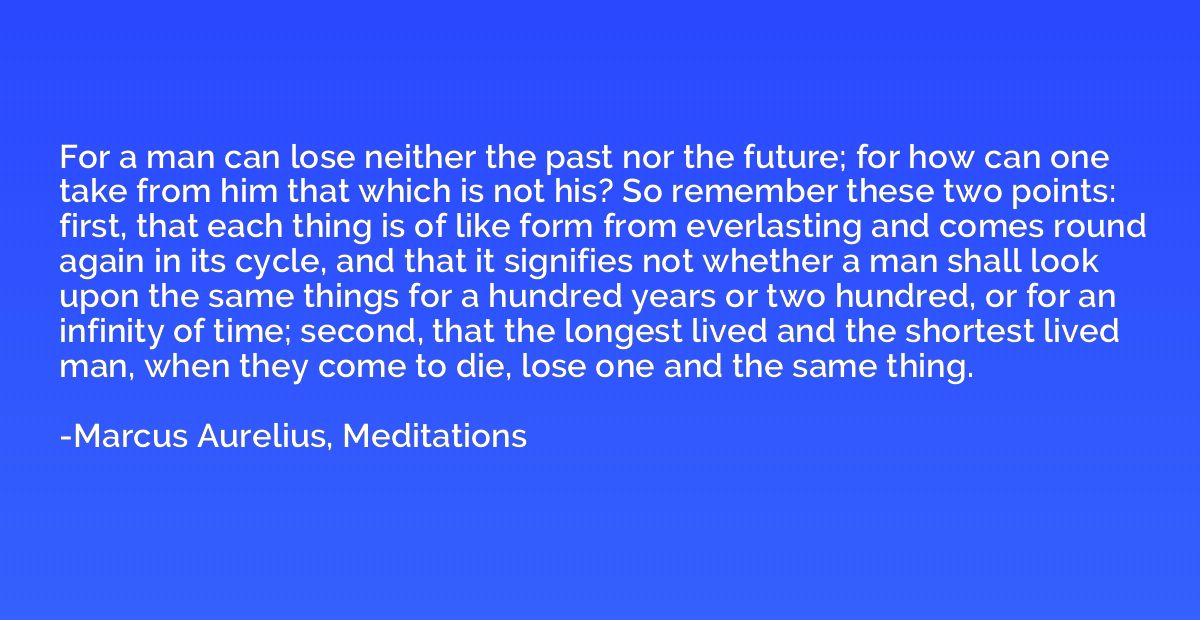Quote by Marcus Aurelius, Meditations
For a man can lose neither the past nor the future; for how can one take from him that which is not his? So remember these two points: first, that each thing is of like form from everlasting and comes round again in its cycle, and that it signifies not whether a man shall look upon the same things for a hundred years or two hundred, or for an infinity of time; second, that the longest lived and the shortest lived man, when they come to die, lose one and the same thing.

Summary
This quote reflects the Stoic philosophy that emphasizes the insignificance of both past and future. The author argues that since the past and future are not truly possessions of an individual, they cannot be lost. The quote suggests that everything in the world exists in a cyclical pattern and it does not matter whether one observes the same things for a short or long period of time. Additionally, it asserts that death is a great equalizer, as both the longest and shortest lived individuals ultimately lose the same thing - their life. The overall message is to detach oneself from the burden of time and focus on the present moment.














